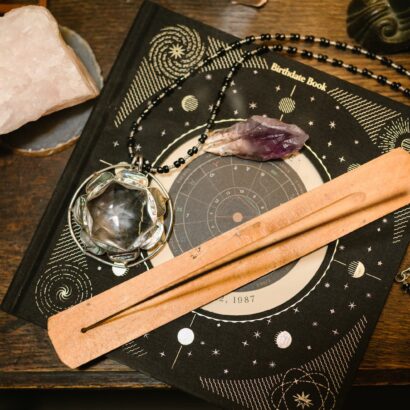Feng shui is a Chinese method of planning space so, to live in accordance with Nature and positively energize specific areas of life. It combines folk beliefs and religion. It is based on the belief that the world is dual, that everything is connected to everything, that everything is saturated with Chi energy – the universal life force that exists in the Universe – people, objects, sky and earth. When Chi energy between them circulates unhindered, we experience harmony in life. When any blockage arises, it reflects on a person’s life. Feng shui therefore defines ways to create a harmonious environment so that blockages to the free flow of energy do not form.
Wind and water
Feng shui is written by 2 characters meaning wind and water. Wind cannot be seen – it is invisible. Water cannot be grasped – it is elusive. This is the key to understanding this method. Feng shui, then, is about subtle changes in the environment, but which can make a big difference. They can both improve health and enhance overall well-being.
Yin and Yang
The essence of feng shui is to maintain a balance between Yin and Yang. Yin is the feminine element. It is the passive, soft elements that bring peace. Yang is the male element. It stands for everything that is active, that stimulates action. So the world is dual and true harmony will be achieved if these two forces are in balance. None of these elements can exist independently – like a man without a woman, a day without a night, a light without a shadow. Yin and Yang as their opposites complement each other. A well-decorated environment should therefore contain as many Yin as Yang elements.
5 elements – 5 transformations
The world is built by 5 elements – water, tree, fire earth and metal. The elements are subject to the Yin-Yang principle.
Yang cycle
Metal comes out of the earth. Liquid metal flows as water. Water nourishes tree. Wood feeds fire. Fire produces ash, which fertilizes the earth.
Yin cycle
Metal destroys the tree. The tree stretches the earth. Earth absorbs water. Water extinguishes fire. Fire melts metal.
The various elements can thus support or destroy each other. The growth of one element causes the growth of another. The demolition of one destroys the next. However, they combine to form a closed system. Cycles and transformations occur one after another and thus Chi energy flows freely. A well-designed environment should contain elements of each of these 5 elements.
Bagua grid
The basis of Feng Shui planning is the bagua grid. It is 9 equal fields of sectors – 8 of which, based on the 8 trigrams of the I Cing from the Book of Changes, correspond to the 8 spheres of life, while the middle ninth is reserved only for Chi energy. On the plan of the bagua grid in ancient China cities, villages, houses were built. We can arrange our apartment or just our room according to it.
The main principles of feng shui
Cleanliness and order
Rooms should be clean and there should be no disorder and chaos. Every object should have its own place.
Airing
This is because fresh air carries the fresh Chi energy necessary to create harmony around us. Air circulation also removes the negative energy accumulated in the room.
Plants
Plants provide oxygen, reduce stress, increase humidity, absorb toxic substances. They are part of Nature, they are alive and stimulate us.
Natural light
Rooms should have large and unobstructed windows. This is because the sun vitalizes, gives energy to live, improves well-being.
Sharp edges
There should be as few as possible, as they interfere with the free flow of energy. There should be as many objects as possible in the rooms with round or rounded edges – such as tables. Knives should therefore be buried.
Avoid holding broken objects
Broken things should be repaired – restored to life – so as not to block the free flow of energy. If something cannot be repaired, it should be thrown away.
Minimalism
Unnecessary or unnecessary things should be avoided. Old and unused clothes are better to give away to someone who may need them than to keep them indefinitely in the hope that they will be useful someday. In the same way, it is better to get rid of an old iron from the house when we bought a new one. Reduce the amount of unnecessary trinkets – such as souvenirs from vacations.


